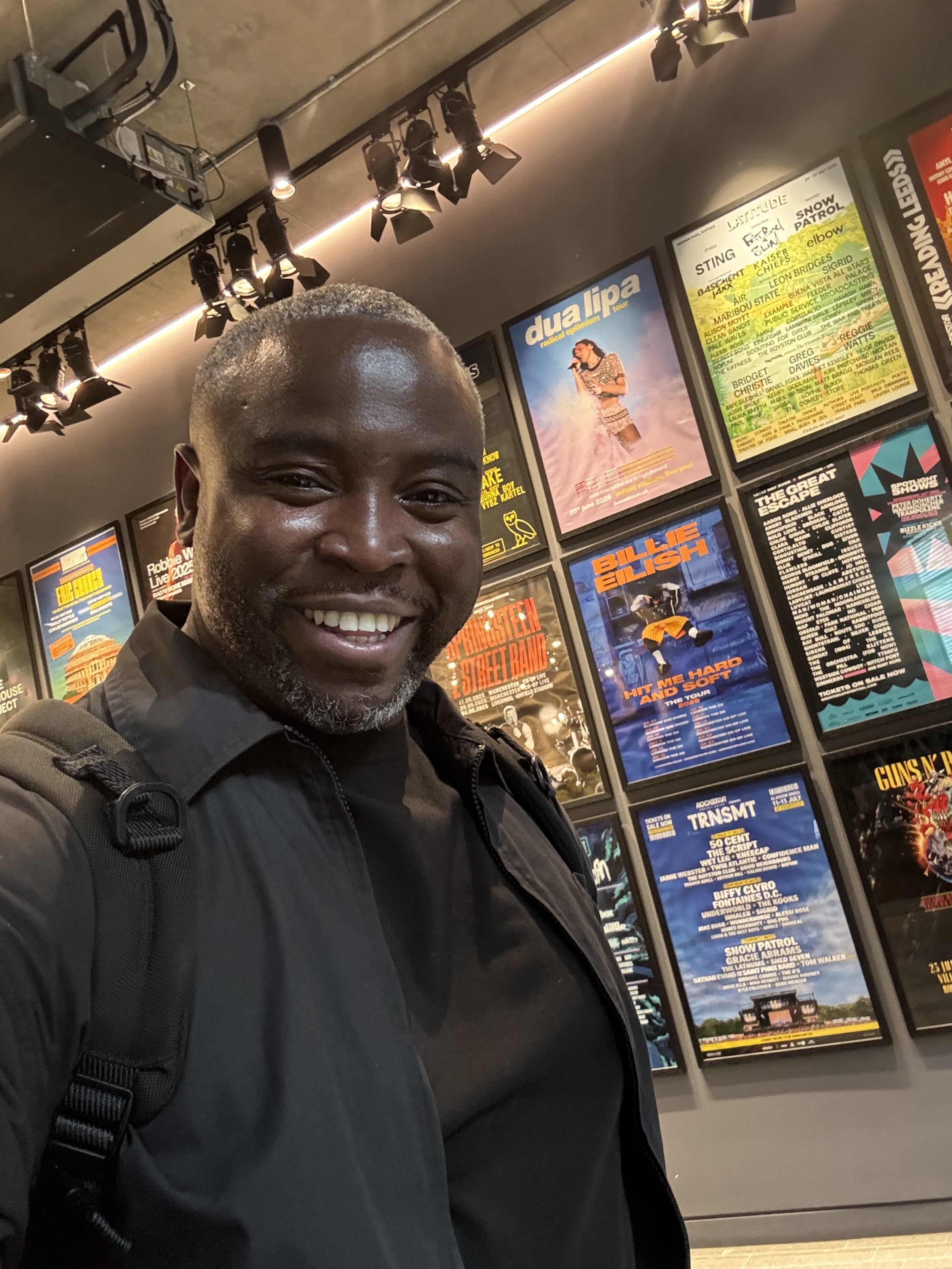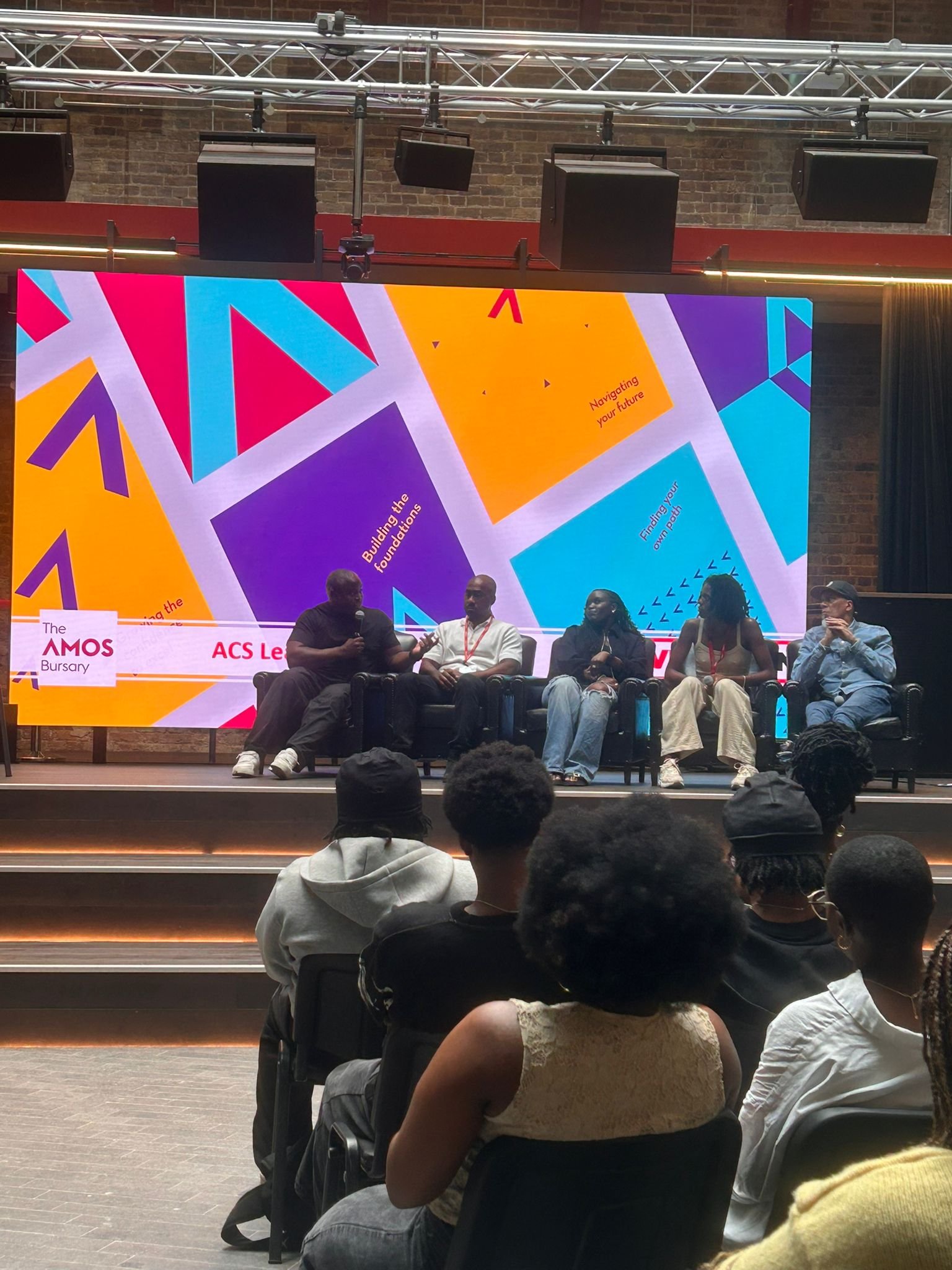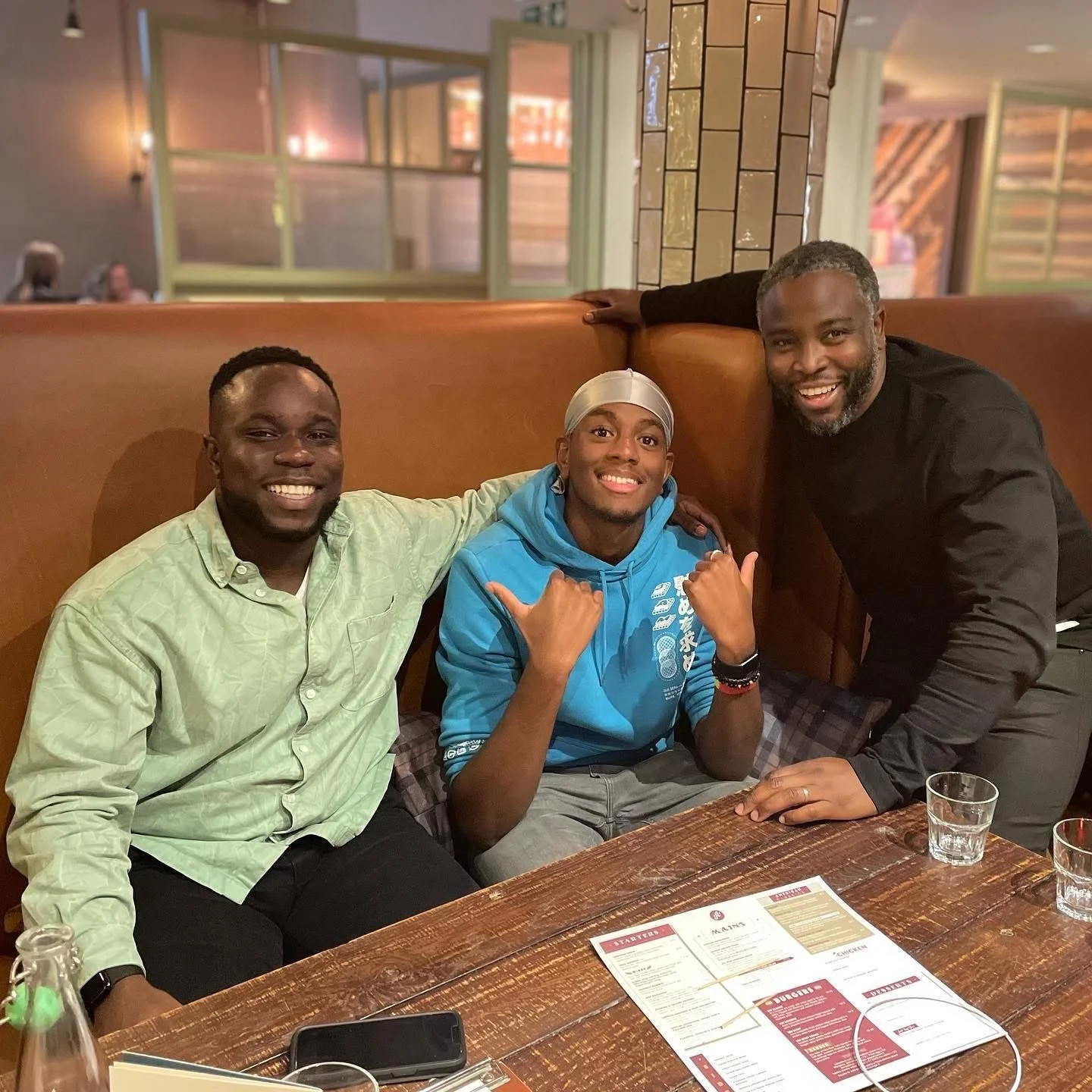Beyond Firsts: Leadership, Excellence, and the Power of Community for ACS Leaders
Last weekend, I had the privilege of joining a panel at the Amos Bursary’s 4th Annual ACS Leadership Conference in London
For those unfamiliar, the Amos Bursary is a UK-based organisation dedicated to supporting the next generation of Black talent by providing mentorship, leadership development, and opportunities to excel academically and professionally.
An African and Caribbean Society (ACS) is a student-led network found at universities across the UK. ACS groups create spaces for Black students to connect, develop leadership skills, and amplify their impact on campus… both socially and academically.
For six years as an Amos Bursary mentor, I’ve seen firsthand how these events empower young Black leaders, giving them the clarity, confidence, and skills to thrive academically, professionally, and personally.
Being on that stage was energising. But there’s always the risk of walking away thinking: did I really say what needed to be said? This post is my reflection and a guide for ACS leaders looking to grow personally and as leaders of others.
The weight of academic excellence: Lessons for emerging leaders
A strong theme in our discussion was excellence in education. At one point, someone said:
“We don’t like 2:1s, we don’t like 2:2s, we don’t like thirds… we like firsts!”
Delivered with conviction, it landed. And looking around the room, it was clear: the students there embodied excellence.
There’s no denying it… academic achievement can open doors and create opportunities. But here’s my truth: I didn’t graduate with a First AND if my kids go to university, the bar will be set at achieving a First… if they’re capable, and if that’s the path they truly want to pursue. Because success isn’t just about chasing grades, it’s about chasing the right goals for you.
At the time, I didn’t yet have the maturity, discipline, clarity, focus, or learning strategies to commit fully to that goal. I didn’t know how to leverage my strengths or understand the consequences of underperforming. And yes, sometimes people say or think things like “I wasn’t ready” or “it just wasn’t me” as a way to justify their experience or misgivings. That’s human. But reflection matters more than excuses. That experience shaped me in ways a grade never could: excellence is personal, and potential exists before readiness.
Excellence isn’t a number. It’s knowing your strengths, committing fully, and celebrating growth. As The Black Sherpa Manifesto reminds us: lead with purpose. Grow with courage. Rise… without losing who you are.
Multiple intelligences: Redefining leadership potential
Another key theme from the conference: our systems don’t capture all forms of intelligence.
Howard Gardner’s Multiple Intelligences Theory reminds us that intelligence isn’t just about test scores. It shows up in many ways:
Linguistic – communicate and persuade
Logical-mathematical – solve complex problems
Spatial – see the big picture
Bodily-kinesthetic – excel in hands-on environments
Musical – pattern recognition and creativity
Interpersonal – build trust, influence others
Intrapersonal – self-awareness, reflection, resilience
Naturalistic – recognise patterns in the world
Universities often reward a narrow slice of this spectrum, but leadership… and life, demands all of it.
This is where ACS groups shine. They provide the perfect platform to broaden your university experience, develop untapped talents, and hone leadership skills that aren’t measured in exams: influencing peers, collaborating across differences, and taking initiative in complex environments.
Even Afro Beats Night, which might feel like just a disco plays a part in this. Dancing, socialising, and celebrating culture builds interpersonal intelligence, confidence, and presence. Whether you have the courage to go first, the confidence to dance alone, or the connection to move together, each choice reflects a different kind of leadership skill. Leadership isn’t only learned in lectures; sometimes it’s learned on the dance floor.
Understand your strengths. Build your self-awareness. And help others discover theirs. Excellence is diverse, and your path doesn’t have to fit someone else’s definition. ACS is your space to explore it fully… academically, socially, and culturally.
Maximising potential, not comparing outcomes
Seun asked me on stage:
“After decades in pharma, you pivoted to start The Black Sherpa. What did you see was missing, and why did you want to become part of the change?”
I had seen brilliant, talented professionals struggle to navigate systems. Organisations talked about diversity, but few provided the mentorship, visibility, and tools needed to truly thrive.
That’s why I started The Black Sherpa: to help under-represented professionals rise without losing themselves. To give clarity, build confidence, and create connections that let people leverage their strengths fully.
Leadership is about maximising potential… yours and others’. Not everyone will get a First. Excellence is about alignment, focus, and committing fully to what matters most.
Sharing insights alongside an inspiring panel at the Amos Bursary 4th Annual ACS Leadership Conference
The power of Black-only spaces in leadership development
The conference reminded me of the dual value of Black-only spaces:
Safe space for growth and reflection: a place to share experiences, explore challenges, and build confidence without judgment.
Launchpad for broader impact: these spaces are more than safe havens; they are intensive training grounds. They allow you to develop critical leadership skills, expand your networks, and strengthen your influence. They prepare you to drive meaningful change in diversity, integration, collaboration, and inclusion… not just within your university, but across professional and community environments.
ACS groups function similarly to Employee Business Resource Groups (EBRGs) or Employee Resource Groups (ERGs) in the workplace. Just as ACS provides students a platform to practice leadership, build networks, and influence outcomes, ERGs provide employees a safe space to do the same: develop skills, advocate for inclusion, and amplify their impact within the organisation. Experiences gained in ACS can translate directly into confidence and capability in professional environments, giving students a head start in shaping inclusive cultures in their future careers.
I couldn’t help but think: I wish I had access to spaces like this at a similar age. Would I have turned up? What might I have gained? The truth is, these spaces accelerate learning, confidence, and visibility in ways that a lecture hall or exam can’t replicate.
Build your skills in these spaces, then take your influence into broader environments where change happens… whether that’s campus, community, or workplace.
Navigating the pressure of representation
Another recurring theme: the weight of representing your culture or community.
Representation matters. But it should not come at the expense of your growth, wellbeing, or authenticity. Too often, people feel pressured to conform to stereotypes or narratives that don’t serve them… trying to be what others expect instead of who they truly are. Your first responsibility is to yourself. Lead authentically. Connect across differences. Build community intentionally, on your terms.
The Black Sherpa Manifesto reminds us: make community a conscious strategy. Own your story. Lift others with intention. Don’t let external expectations or limiting narratives hold you back… use your voice, your influence, and your presence to shape your path and inspire others.
Reflective questions for (ACS) leaders
Before moving on, consider these:
Defining success: Are you chasing someone else’s bar, or your own version of excellence?
Maximising strengths: How are you leveraging your unique ways of learning, thinking, and problem-solving to reach your goals?
Supporting others: What’s one action you could take this week to help someone discover their zone of excellence and confidence?
Final reflections and leadership challenge
Walking away from the ACS Leadership Conference, I was reminded of the brilliance, ambition, and drive in our community. The students I met will shape the future… and the future is in capable hands.
I’m deeply grateful to the Amos Bursary, Colleen Amos OBE, Stephen Brooks, Seun Sontan, and everyone involved for creating these spaces and inviting me to contribute. After six years of mentoring, I remain as inspired as ever.
I also want to dedicate this reflection to a brilliant young man who passed away too soon: Richmond Amoah, my co-mentor when I started my journey with the Amos Bursary. Richmond was full of warmth, insight, and enterprise. I often wonder what he would say about this post… I know it would start with the word “Sometimes…”, and whatever came next would cut straight to the point and make me smile.
Sometimes… joy & connection: This was the only time Richmond, Solomon, and I managed to meet in person after years of virtual catch-ups. Forever grateful for this memory.
Challenge for you this week: Where are you maximising your excellence? How are you helping someone else discover theirs? Lead with purpose, grow with courage, and rise… without losing who you are.
Climb steady.
I’m Yam – Founder of The Black Sherpa
Founder | Strategist | Speaker | Host of The Black Sherpa Podcast
I founded The Black Sherpa to create a world where talent rises on merit and no one’s potential is held back by bias or barriers.
Through bold strategy, storytelling, and our flagship community, The 29k Club - I help professionals grow with confidence and support leaders to build cultures that truly live their values.
Let’s connect and build a future where inclusion powers performance, and leadership reflects the world we serve.



